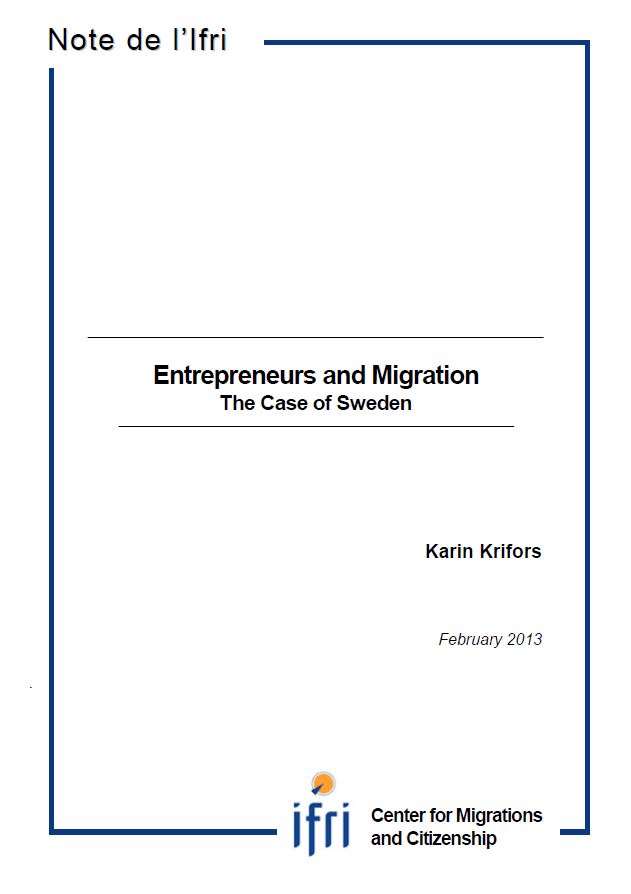Entrepreneurs and Migration: The Case of Sweden

The " Swedish Model " of labor immigration management came to a turning point with the 2008 reform. This major reform consisted in a deregulation of the labor market, which until then had only opened a limited number of positions to migrants. However, what consequences can be expected from such a political shift: the benefits of a productive competitiveness or the threat of exploitation and social dumping?
Karin Krifors, a PHD candidate at the Remeso Institute of Linköping University, Sweden, uses her expertise in migrant workers" socio-professional integration to identify the stakes of such a reform.
She traces the history of a model of corporatism and universalist welfare state, which had to evolve with the waves of labor immigration taking place in the 60s and 70s, and then with the EU"s enlargement and its harmonization of migration policies. Karin Krifors therefore highlights a stimulating question: Has Sweden become the ultimate model of migratory liberalism in the European Union?
Download the full analysis
This page contains only a summary of our work. If you would like to have access to all the information from our research on the subject, you can download the full version in PDF format.
Entrepreneurs and Migration: The Case of Sweden






